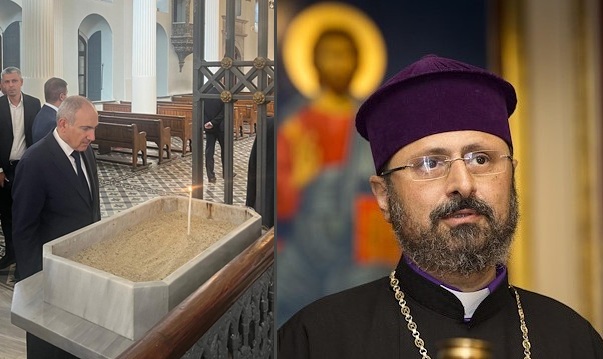
This is the English translation of a Turkish language article that was originally published by AVİM on 23 October 2025.
Following a process marked by controversy within Türkiye’s Armenian community, Sahak II Mashalyan was elected as the new Armenian Patriarch of Istanbul (Patriarch of the Armenians of Türkiye) in 2019. Throughout his religious career, Mashalyan has demonstrated a balanced personality and maintained a positive profile, and after his election as patriarch, he made statements indicating that he would continue his constructive approach.[1] Mashalyan argued that the Turkish Armenian community is in need of a restructuring and stated that he would work towards this goal.
The Istanbul Armenian Patriarchate, a Turkish public institution operating within the framework established by the 1923 Treaty of Lausanne, the founding document of the Republic of Türkiye, has its origins in the early years of the Ottoman State. During the Ottoman period, the Patriarchate was authorized to represent the Armenians who were Ottoman subjects within the millet system. In the Republican era, the Patriarchate’s role has been limited to meeting the religious needs of the citizens of Orthodox Armenian origin and providing leadership in spiritual matters. As a Turkish public institution, the Istanbul Armenian Patriarchate is expected to act in a manner that safeguards the interests of the Turkish state and society. However, some of Patriarch Sahak II's recent actions have begun to raise questions within the context of the Türkiye-Armenia normalization process.
One example of these actions is the Patriarch's regular participation in high-level religious meetings called the "Supreme Spiritual Council," organized by the Armenian Catholicosate of Etchmiadzin in Armenia.[2] The Armenian Catholicosate of Etchmiadzin and the Armenian Patriarchate of İstanbul are two of the four administrative centers of the Armenian Apostolic Church. These centers have administrative independence, meaning that these centers lack the authority to interfere in the affairs of their counterparts. Although the Catholicosate of Etchmiadzin holds seniority, the Patriarchate of İstanbul, thanks to the power of the Ottoman State, held a dominant position in the religious world of the Armenians for centuries. Within the framework of church solidarity and respect for the church's hierarchical seniority, it would be considered normal for Patriarch Sahak II to participate in the Etchmiadzin meetings. However, the equation changes when considering the following factors: the historically prestigious position of the Patriarchate of İstanbul and the known anti-Turkish and anti-Türkiye stance of Catholicos Karekin II of Etchmiadzin, his opposition to the normalization of Türkiye-Armenia relations, and his becoming one of the dominant opposition elements in Armenia against the Nikol Pashinyan government that is trying to conduct the normalization process with Türkiye. Considering these factors, it would be expected that Patriarch Sahak II -taking Türkiye's interests into account- would maintain a distance in his relations with Etchmiadzin.
Another behavior of Patriarch Sahak II that raises questions is his support for Karekin II in the Pashinyan-Karekin II struggle. In Armenia, Pashinyan represents the reformist wing that wants to establish cooperation and peace with Türkiye and Azerbaijan, while Karekin II represents the revanchist wing that wants to support separatism in Karabakh indefinitely and use the genocide narrative as a foreign policy tool. With his opposition, Karekin II has gone far beyond being just a religious official, almost turning the Apostolic Church, which he leads as the Catholicos, into the main opposition party in Armenia. Although the tone of the criticisms directed at him by Pashinyan is excessive and inappropriate, many people share the content of Pashinyan’s criticisms.[3] It has long been argued that Karekin II acts more like a politician than a religious leader, that he has been involved in various irregularities both inside and outside the church, and that he has a habit of mistreating the church staff. Through his statements, Sahak II has indicated that he, along with the other three leaders of the Armenian Apostolic Church, have taken a united stance against the Pashinyan government.[4] Of course, Sahak II's primary reason for doing this has not been to support Karekin II's views, but rather because he believes that the Armenian Apostolic Church has been attacked as a whole through Karekin II and that he has found this to be unacceptable. However, by doing so, he has ignored Karekin II's hostile approach towards Türkiye and his problematic personality, creating the risk of his name being associated with Karekin II.
Furthermore, when Pashinyan visited Türkiye in June 2025 and met with representatives of the Turkish Armenian community, he did not send any religious official to accompany Pashinyan (Sahak II was abroad at the time) and kept the Patriarchate building closed. In a subsequent statement, Sahak II indicated that the Pashinyan government did not adhere to protocol and failed to make the necessary arrangements in advance, and also indicated that he silently protested Pashinyan's anti-church stance by not sending any religious official to accompany Pashinyan.[5] Sahak II may have thought he was politely criticizing Pashinyan, however, with this behavior, he created an unpleasant situation for the Turkish state (of which he is a member) during a highly symbolic visit by the prime minister of a foreign state.
In light of all this, Sahak II recently made statements regarding the Türkiye-Armenia normalization process to the members of the Armenian press who were visiting Türkiye. By doing so, he assumed the role of spokesperson for the Turkish-Armenian community and expressed the community's full support for this process.[6] It is clear that Sahak II made these statements with good intentions, but he appears to have paid scant attention to whom he addressed them. It should be kept in mind that members of the Armenian press are representatives of a people who have been subjected to the genocide narrative propaganda for over a century, decades of Soviet propaganda against the Western camp member Türkiye during the Cold War, and the propaganda of former Armenian governments that supported Karabakh separatism. Some aspects of Sahak II's well-intentioned statements carry the risk of being misperceived, distorted, and misrepresented to the Armenian public by journalists who have been conditioned to approach Türkiye negatively. It would have been more appropriate for an experienced public official like Sahak II to avoid interviewing journalists from Armenia on sensitive topics that could have foreign policy implications.
In conclusion, the Armenian Patriarch of Istanbul Sahak II Mashalyan seems to be losing the poise he displayed when he first assumed office. We hope that he will act more cautiously in the future, in awareness of his significant position, and it is our desire that the Türkiye-Armenia normalization process, currently underway with caution but determination, will conclude positively for both sides.
*Picture: Prime Minister of Armenia Nikol Pashinyan during his visit to the Kumkapı Patriarchate Church of Mother Mary (left), the Armenian Patriarch of İstanbul Sahak II Mashalyan (right)
[1] Mehmet Oğuzhan Tulun, “2019 Armenian Patriarch Of Istanbul Election”, Center for Eurasian Studies (AVİM), Analysis No: 2019/30, December 25, 2019, https://avim.org.tr/en/Analiz/2019-ARMENIAN-PATRIARCH-OF-ISTANBUL-ELECTION
[2] See for example: “Sahag II visits Armenia for Supreme Spiritual Council meeting”, ArmenPress, March 8, 2025, https://armenpress.am/en/article/1213904
[3] A recent example of the Pashinyan-Karekin II dispute: “Paşinyan'ın Katolikos II. Karekin hakkındaki iddialarına Yüksek Ruhani Konsey yanıt verdi”, Agos, 2 Haziran 2025, https://www.agos.com.tr/tr/yazi/33788/pasinyan-in-katolikos-ii-karekin-hakkindaki-iddialarina-yuksek-ruhani-konsey-yanit-verdi
[4] Lia Avagyan, “All four pontifical sees of Armenian Church voice concern over government pressure”, CivilNet, June 30, 2025, https://www.civilnet.am/en/news/960627/all-four-pontifical-sees-of-armenian-church-voice-concern-over-government-pressure/
[5] Vartan Estukyan, “Paşinyan Ermeni toplumuyla buluştu, Patrikhane ‘dersi ekti’”, Agos, 24 Haziran 2025, https://www.agos.com.tr/tr/yazi/34005/pasinyan-ermeni-toplumuyla-bulustu-patrikhane-dersi-ekti ; Yetvart Danzikyan ve İşhan Erdinç, “Patrik Maşalyan: ‘Başbakan Paşinyan'a sessiz protestomuzu gösterdik’”, Agos, 3 Temmuz 2025, https://www.agos.com.tr/tr/yazi/34099/patrik-masalyan-basbakan-pasinyan-a-sessiz-protestomuzu-gosterdik
[6] Araks Kasyan, “Patrik Maşalyan: Türkiye ile Ermenistan arasındaki ilişkilerde iyimser olmak için birçok neden var”, ArmenPress, 14 Ekim 2025, https://armenpress.am/tr/article/1232012 ; Siranush Ghazanchyan, “Turkish-Armenian community supports normalization with Armenia, Patriarch Sahak II says”, Public Radio of Armenia, October 14, 2025, https://en.armradio.am/2025/10/14/turkish-armenian-community-supports-normalization-with-armenia-patriarch-sahak-ii-says/
© 2009-2025 Center for Eurasian Studies (AVİM) All Rights Reserved
No comments yet.
-
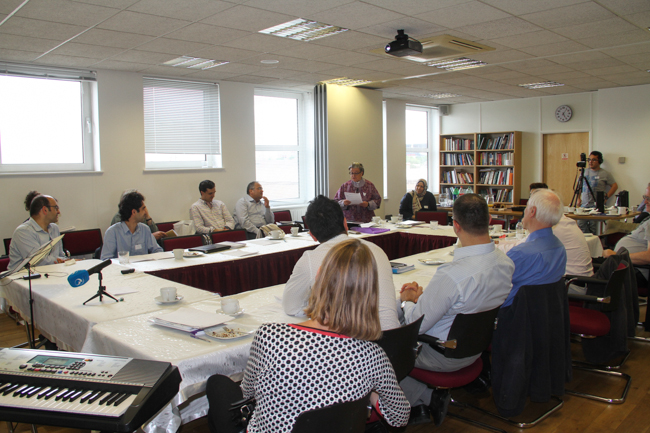 AFTER WATS: PERSPECTIVES ON TURKISH-ARMENIAN SCHOLARSHIP
AFTER WATS: PERSPECTIVES ON TURKISH-ARMENIAN SCHOLARSHIP
AVİM 21.09.2017 -
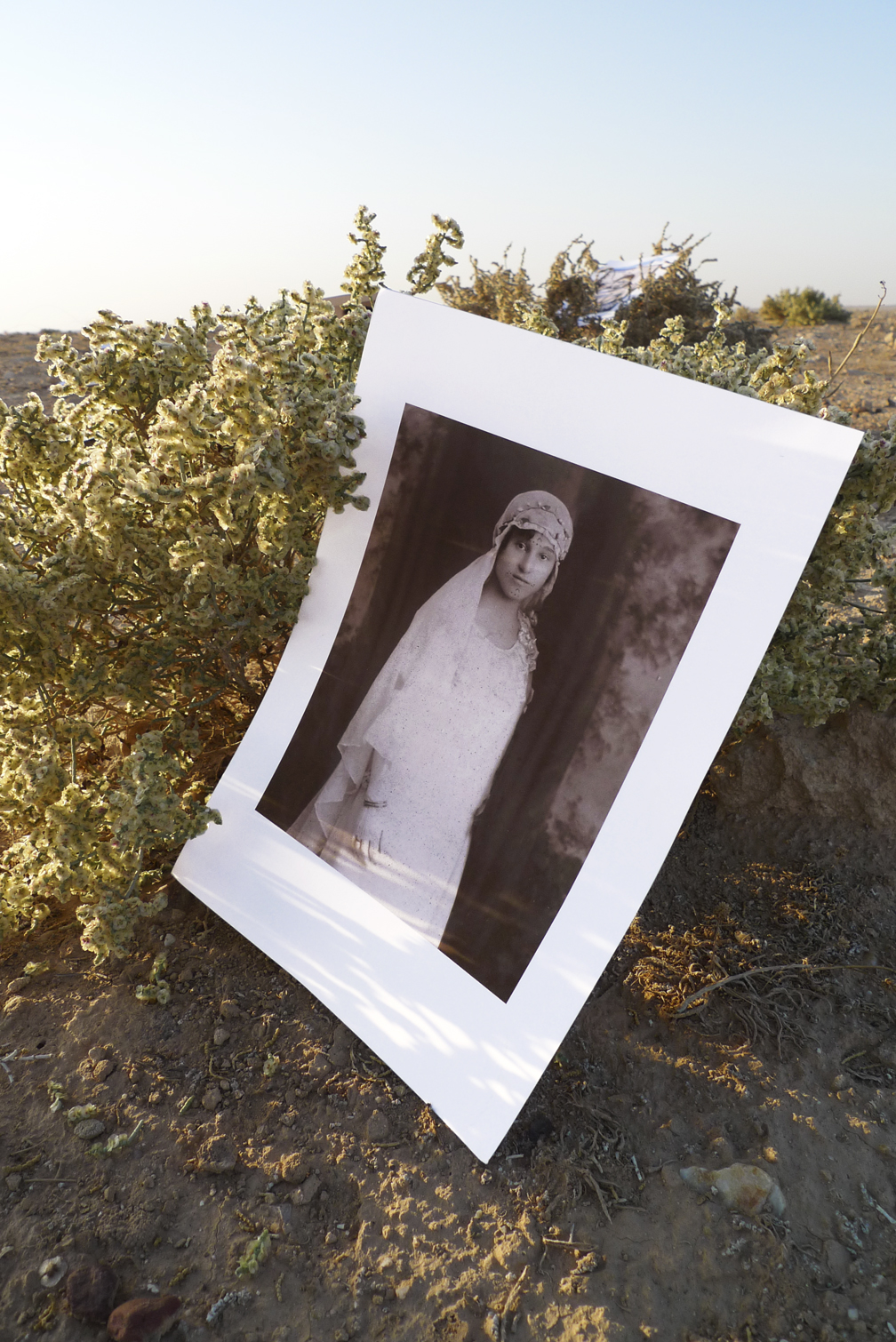 GRANDMA'S TATTOOS: ANOTHER FALSIFICATION
GRANDMA'S TATTOOS: ANOTHER FALSIFICATION
AVİM 08.12.2017 -
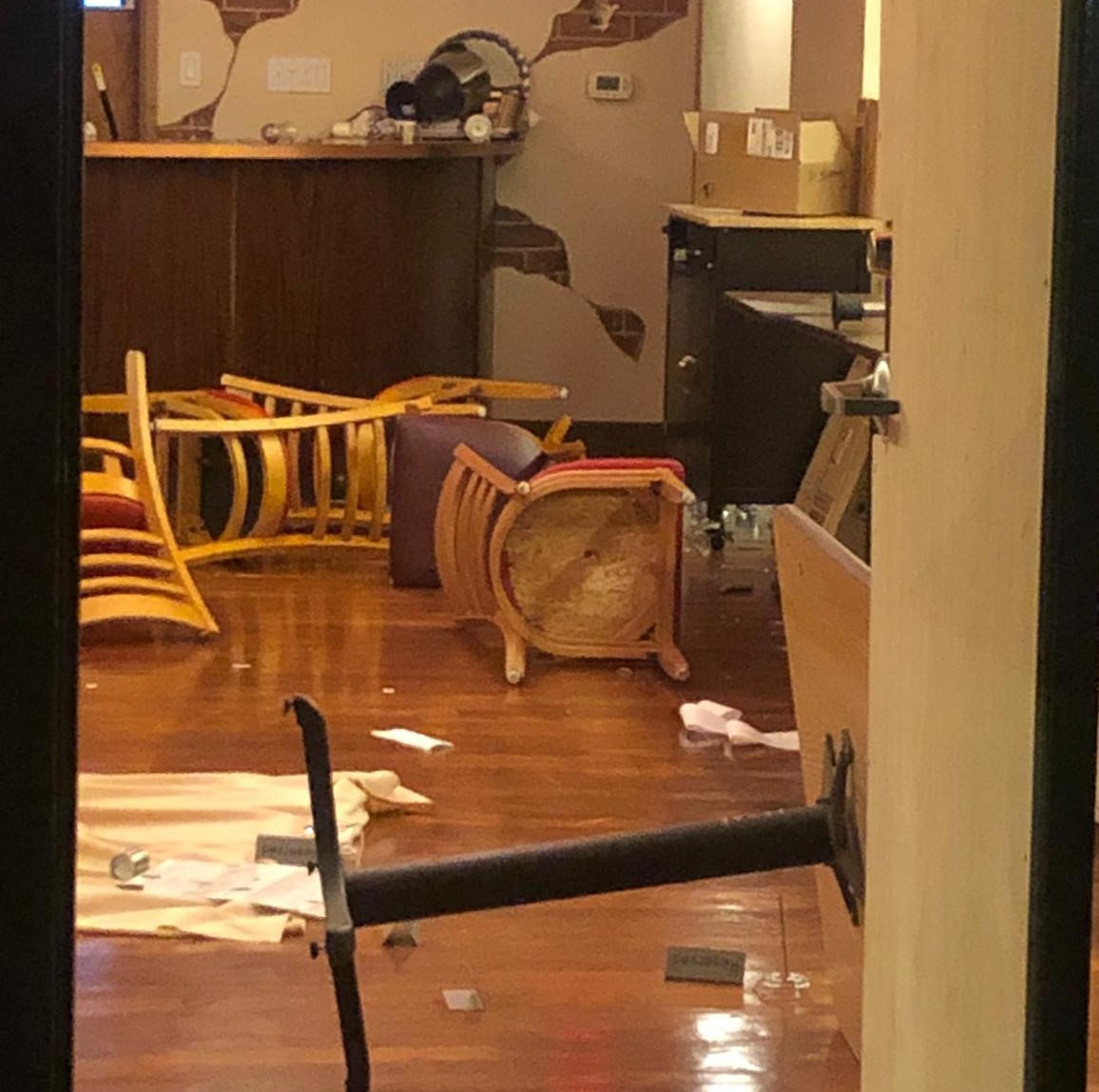 HATE CAMPAIGN OF THE ARMENIAN DIASPORA REACHES DISTURBING LEVELS
HATE CAMPAIGN OF THE ARMENIAN DIASPORA REACHES DISTURBING LEVELS
AVİM 03.12.2020 -
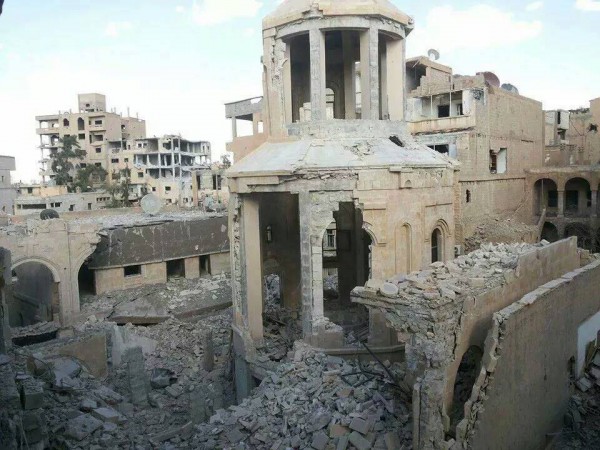 “THE ARMENIAN NARRATIVE” IN SYRIA: HOW RELIABLE IS IT?
“THE ARMENIAN NARRATIVE” IN SYRIA: HOW RELIABLE IS IT?
AVİM 30.01.2019 -
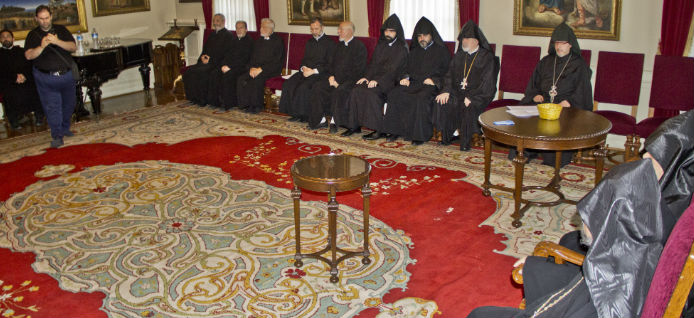 CONCERNS OVER THE PATRIARCH ELECTION
CONCERNS OVER THE PATRIARCH ELECTION
AVİM 07.07.2017
-
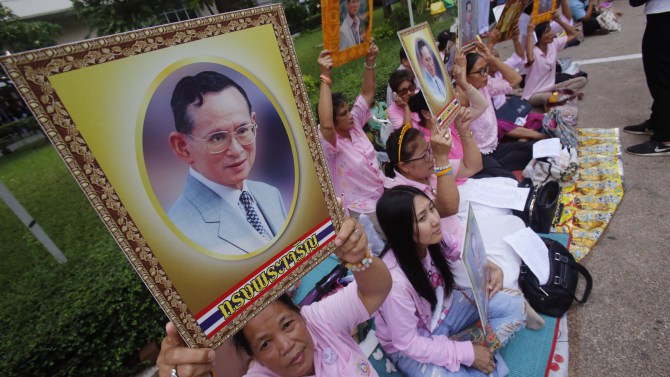 THE SHATTERING OF REGIONAL ANCHOR FOR STABILITY: THE PASSING OF KING BHUMIBOL ADULYADEJ
THE SHATTERING OF REGIONAL ANCHOR FOR STABILITY: THE PASSING OF KING BHUMIBOL ADULYADEJ
Teoman Ertuğrul TULUN 28.11.2016 -
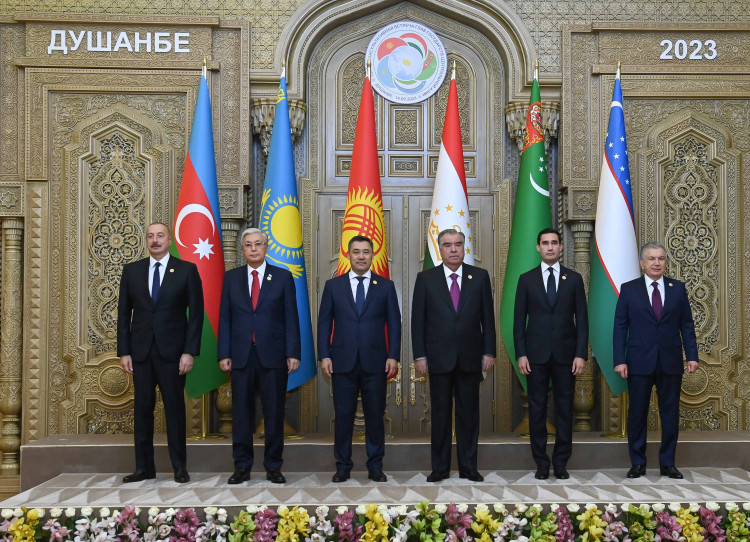 THE FIFTH CONSULTATIVE MEETING OF HEADS OF STATE OF CENTRAL ASIA
THE FIFTH CONSULTATIVE MEETING OF HEADS OF STATE OF CENTRAL ASIA
Gülperi GÜNGÖR 29.09.2023 -
 PASHINYAN’S QUEST FOR A NEW CONSTITUTION
PASHINYAN’S QUEST FOR A NEW CONSTITUTION
Turgut Kerem TUNCEL 02.02.2024 -
FRANCE AND THE ARMENIAN GENOCIDE ALLEGATIONS (II)
Ömer Engin LÜTEM 18.01.2011 -
THE ARMENIAN PRESIDENTIAL ELECTIONS INDICATE THAT THE TENSION IN THE REGION WILL CONTINUE TO BUILD UP
Alev KILIÇ 18.12.2012
-
25.01.2016
THE ARMENIAN QUESTION - BASIC KNOWLEDGE AND DOCUMENTATION -
12.06.2024
THE TRUTH WILL OUT -
27.03.2023
RADİKAL ERMENİ UNSURLARCA GERÇEKLEŞTİRİLEN MEZALİMLER VE VANDALİZM -
17.03.2023
PATRIOTISM PERVERTED -
23.02.2023
MEN ARE LIKE THAT -
03.02.2023
BAKÜ-TİFLİS-CEYHAN BORU HATTININ YAŞANAN TARİHİ -
16.12.2022
INTERNATIONAL SCHOLARS ON THE EVENTS OF 1915 -
07.12.2022
FAKE PHOTOS AND THE ARMENIAN PROPAGANDA -
07.12.2022
ERMENİ PROPAGANDASI VE SAHTE RESİMLER -
01.01.2022
A Letter From Japan - Strategically Mum: The Silence of the Armenians -
01.01.2022
Japonya'dan Bir Mektup - Stratejik Suskunluk: Ermenilerin Sessizliği -
03.06.2020
Anastas Mikoyan: Confessions of an Armenian Bolshevik -
08.04.2020
Sovyet Sonrası Ukrayna’da Devlet, Toplum ve Siyaset - Değişen Dinamikler, Dönüşen Kimlikler -
12.06.2018
Ermeni Sorunuyla İlgili İngiliz Belgeleri (1912-1923) - British Documents on Armenian Question (1912-1923) -
02.12.2016
Turkish-Russian Academics: A Historical Study on the Caucasus -
01.07.2016
Gürcistan'daki Müslüman Topluluklar: Azınlık Hakları, Kimlik, Siyaset -
10.03.2016
Armenian Diaspora: Diaspora, State and the Imagination of the Republic of Armenia -
24.01.2016
ERMENİ SORUNU - TEMEL BİLGİ VE BELGELER (2. BASKI)
-
AVİM Conference Hall 24.01.2023
CONFERENCE TITLED “HUNGARY’S PERSPECTIVES ON THE TURKIC WORLD"









